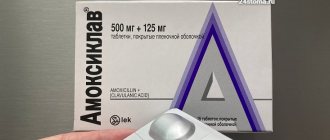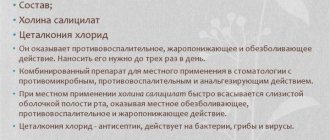With a sore throat, a person complains of soreness, scratching, irritation, discomfort, and a burning sensation in the throat. The throat is sore, it is difficult to swallow food, drink, these sensations intensify when swallowing or talking.
Sore throat may be accompanied by swelling of the throat mucosa, difficulty swallowing, soreness and enlargement of the cervical lymph nodes, the appearance of white or yellowish spots on the tonsils, coughing, sneezing, nasal congestion, runny nose, fever, chills, excessive salivation, muscle and joint pain, headache, nausea and vomiting, skin rash, loss of appetite, feeling of a lump in the throat, heartburn, hoarseness.
Why does my throat hurt?
Most cases of sore throat are caused by bacteria. It appears as a result of acute inflammation. The focus is located either in the tonsils, and then they talk about tonsillitis, or in the pharynx (pharyngitis).
With bacterial infections, pain appears suddenly and quickly intensifies, accompanied by a sharp increase in temperature and a significant deterioration in general well-being. You should immediately contact a therapist. The following treatment is usually prescribed:
- a course of antibiotics, and it is important to drink them to the end;
- regular rinsing: timely cleansing of mucus and pus is of fundamental importance for a quick recovery;
- lozenges;
- antiseptic spray;
- plenty of warm drinks.
Another large group of pathogens that cause throat diseases are viruses. The sore throat gradually intensifies, the person feels weak, aches throughout the body, and has a headache. The throat may not hurt very much, but it is constant, and in some cases quite sensitive, and enlargement of the cervical lymph nodes is also observed. The temperature rises slightly or remains within normal limits. The disease is accompanied by a profuse runny nose.
In such cases, antiviral drugs are prescribed and the same recommendations are given as for bacterial throat infections: antiseptic sprays, rinses, lozenges.
Another common cause of sore throat is irritation of the mucous membrane, which can occur due to allergies, inhalation of tobacco smoke, or prolonged exposure to dirty or dry air. It is accompanied by severe itching, but the general condition does not worsen, the temperature remains normal. If the pain is the result of an allergy, then itching, sneezing, watery eyes, runny nose, and dry cough may also occur.
Treatment for irritation is as follows:
- elimination of the allergen irritant;
- rinsing with a warm solution of sea salt;
- Irrigation of the throat with soft moisturizing sprays.
Why is a sore throat dangerous?
Never wait for a sore throat to go away on its own. You can drown out unpleasant symptoms with lollipops or folk remedies, but you will not remove the cause of the disease.
Throat infections that are not treated in time become chronic: as soon as local immunity weakens a little, inflammation will certainly arise again. In addition, bacterial and viral infections can cause serious complications.
When should you see a doctor?
Sometimes the pain goes away with self-treatment. But it’s best to immediately start treating your throat by contacting the clinic for help, especially if you are concerned about the following symptoms:
- pain lasts more than 48 hours, and there are no signs of flu or cold;
- the temperature rose sharply;
- accumulations of mucus and pus are observed at the back wall of the throat;
- The lymph nodes in the neck area are greatly enlarged, which causes pain when moving the lower jaw. If mononucleosis develops, then other lymph nodes also enlarge;
- hoarseness, shrunken voice;
- pain occurs when swallowing, localized on one or both sides;
- sensation of lump, soreness, dryness.
Contraindications to the use of sprays
In some cases, throat sprays for children have contraindications.
Obstructive processes in the bronchi. These conditions are characterized by bronchospasms (strong and sharp narrowing of the lumen of the bronchi) and respiratory dysfunction. Any irritation of the mucous membrane of the throat, including contact with medicinal substances, can provoke bronchospasm.
Allergy to at least one component of the drug. Medicines include one or more active ingredients and auxiliary components. Before using any throat spray for children, you should carefully study the instructions and composition. If the list of substances contains even one component to which the child’s immune system is hypersensitive, then the spray should not be used.
Atrophic pharyngitis. With this disease, the mucous membrane of the pharynx becomes thinner and loses its ability to perform its functions. Accordingly, the mechanisms of action of sprays for children against sore throat are disrupted when they come into contact with atrophied mucous membranes, as a result they can cause undesirable changes in it.
What is more effective: sprays, tablets or lozenges?
The choice of dosage form directly depends on the cause of the disease and the nature of the pain. In particular, if the sore throat is caused by bacteria, then the best choice is a spray with a pronounced antiseptic effect. It is important to consider that with prolonged use, infectious agents develop resistance to the drug, so if after 2-3 days you do not feel relief, the medicine needs to be changed. So, how to treat a throat?
For a disease of viral origin, it is best to choose a throat spray that relieves pain and fights inflammation. In the case of chronic pain, it is necessary to regularly irrigate the throat with a spray with a moisturizing effect that does not contain aggressive substances and carefully relieves unpleasant symptoms.
Many drugs reduce symptoms due to the local anesthetics they contain - phenol, benzocaine or dyclonine. Under their influence, the mucous membrane becomes numb, and the pain noticeably weakens.
Throat tablets can be divided into several groups. For example,
- with enzymes that eliminate viruses and bacteria;
- NSAIDs that relieve inflammation;
- with fragments of bacteria and viruses that enhance local immunity;
- with extracts of medicinal plants that reduce pain.
Throat lozenges are effective only in the initial stages of the disease. They usually contain menthol, which has a distracting effect rather than a therapeutic one. Therefore, you should not get carried away with candies.
TOP 5 sprays against sore throat
- Miramistin is a broad-spectrum antiseptic spray to combat bacterial and fungal infections. Quickly reduces pain. It is odorless and tasteless. Suitable for adults and children from three years of age, as well as for pregnant women. Disadvantage: relatively high price, analgesic effect lasts several hours.
- Hexoral destroys infections of bacterial and fungal origin. It has an analgesic, disinfecting, deodorizing and enveloping effect. The therapeutic effect occurs within 1-2 minutes after treatment and lasts 10-12 hours. Application: twice a day after meals. Cons: components of the drug can cause allergies, read the instructions carefully.
- Yox can be called an analogue of the legendary Lugol's drug. It has a powerful antiseptic, antiviral, antifungal effect. Reduces pain well. Processing Disadvantages: cannot be used for a long time, contraindicated for people with iodine intolerance.
- Proposol contains propolis extract and a large amount of vitamins. Complete disappearance of pain occurs within 5-7 days. It works well as part of a complex treatment of inflammation. Cons: not suitable for people allergic to bee products.
TOP 5 tablets for sore throat
- Faringosept copes well with pain and fights inflammation in the oral cavity. Has a pleasant sweet taste. Recommended course is 3-4 days. Quickly relieves pain and restores voice. The packaging is enough for a full course. There are few contraindications. Disadvantage: effective at the initial signs of the disease.
- Hexoraltabs contain a local anesthetic, peppermint oil and menthol. They have an antiseptic effect. A decrease in pain is observed during the first minute of resorption. Available in different flavors. Cons: the drug only helps with the initial signs of the disease.
- Neo-Angin has a pronounced disinfectant and anti-inflammatory effect, relieves pain well, quickly restores the voice, and relieves coughing attacks. Large packaging. Dosage: one tablet every 2-3 hours. The permissible number of tablets per day is six. Cons: irritates the gastric mucosa.
- Grammidin contains the antibiotic gramicidin C; tablets with lidocaine are also available, which not only destroy pathogens and cleanse the mucous membrane, but also immediately relieve pain. The anesthetic effect lasts about 40 minutes. Enhance the effectiveness of medicinal rinses. Disadvantage: cannot be taken during pregnancy and lactation.
- Lizobakt has a powerful antiseptic effect. The drug contains vitamin B6, which increases local immunity, and the protein enzyme lysozyme, which breaks down bacteria, fungi and viruses. Suitable for pregnant and lactating women. It is used for all infectious lesions of the oral cavity.
TOP 5 lozenges for sore throat
- Strepsils plus. The active ingredients fight bacteria, lidocaine reduces pain, anise and peppermint oils have a distracting and enveloping effect. Dosage: no more than 1 lozenge within 2 hours. Disadvantage: short period of action, effective at the initial signs of the disease.
- Halls. Due to eucalyptus oil and menthol, it temporarily relieves pain, cools a sore throat, and relieves hoarseness. Minus: it is not a medicine.
- Carmolis contains extracts of medicinal herbs, honey, and vitamin C. The drug quickly reduces pain, refreshes the oral cavity, has a pleasant taste, but does not last long.
- Gorpils quickly relieves pain and has a pronounced antiseptic effect. Helps with initial and acute forms of the disease. Available in different flavors. Disadvantage: short period of action.
- Agisept relieves pain, has a pronounced antimicrobial effect, and significantly reduces unpleasant symptoms at the onset of the disease. Disadvantage: not suitable for people with allergies to medicinal herbs.
These recommendations do not replace visiting a doctor. There are contraindications. Before purchasing the drug, be sure to consult with your physician.
Back to articles
Diagnostics
Diagnostic measures are carried out by an otolaryngologist. If appropriate indications are identified, the patient is referred for consultation to an allergist, oncologist, or gastroenterologist. The diagnostic plan includes the following activities:
- Questioning, general examination
. The doctor clarifies the time and circumstances of the onset of the symptom, finds out other complaints, and establishes the dynamics of the disease. During the physical examination, the specialist examines the throat, paying attention to specific signs: fever, rash, enlarged lymph nodes, swelling of other areas of the body. - Express diagnostics
. Performed during a consultation, it allows you to reduce the time for laboratory diagnostics and identify common infections. A streptate test and a flu test can be performed. For allergies, allergy tests are performed. - Endoscopic studies
. Depending on the existing symptoms, the otolaryngologist performs pharyngoscopy, direct or indirect laryngoscopy, and endoscopy of the larynx. In case of infectious pathologies and neoplasms, material is collected for subsequent laboratory tests. - Lab tests
. Along with a general blood test, which confirms the presence of an inflammatory process in the body, most often in case of swelling of the throat mucosa, a microbiological examination of a smear is performed to determine the microflora and its sensitivity to antibiotics. If tumor processes are suspected, biopsies are studied during histological or cytological examination.
In some cases, radiography of the nasopharynx, larynx or trachea, and X-ray examination of the lungs are indicated. For GERD, esophagoscopy and gastroscopy are performed. Appropriate tests are performed to identify specific infections.
Taking a swab from the throat mucosa
Causes of sinusitis
A bacterial infection that often occurs as a complication of a viral infection. It is caused by various bacteria (pneumococci, streptococci, staphylococci). Possibly viral sinusitis (caused by influenza viruses, parainfluenza, adenoviruses) and fungal ones. Sinusitis is often preceded by acute respiratory infections, severe nosebleeds, dental disease, and swimming in contaminated water. Infection in the sinuses can enter through the nose, through the blood. In some cases, sinusitis can occur due to allergic reactions.










